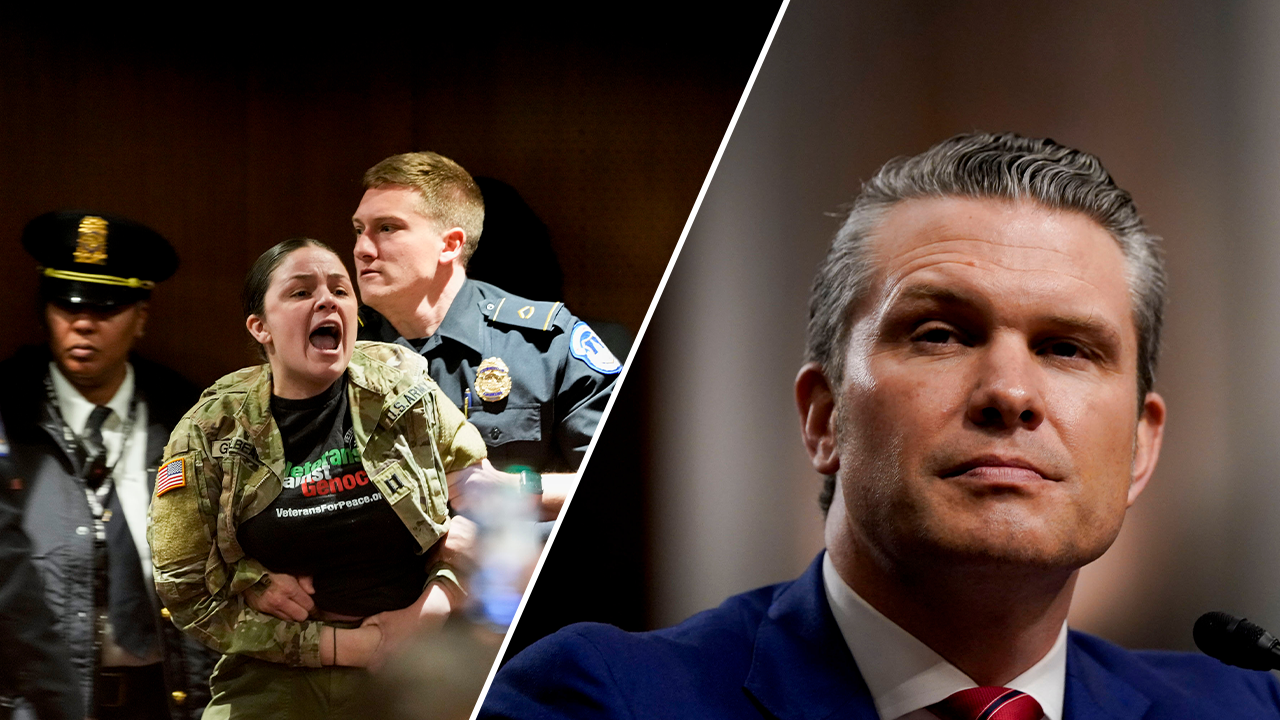Within hours of taking office President Donald Trump has once again signaled his intention to reshape international trade, declaring his plan to impose tariffs on imports from Canada and Mexico within the next 11 days.
Speaking to reporters in the Oval Office during a free-flowing press conference, Trump reiterated how he is considering a 25 percent tariff, targeting the United States' closest neighbors and trading partners.
The announcement has sparked widespread attention as the administration contemplates a dramatic shift in North American trade relations.
Initially promised as a priority for his first day in office, the tariffs now appear slated to take effect on February 1.
'It's something I've been thinking about for a long time,' Trump remarked during the Oval Office press briefing.
The slight delay has been described as a 'brief reprieve' by analysts, offering businesses and trading partners a short window to brace for the potential economic impacts.
The proposed 25 percent tariff would represent a significant escalation in trade tensions and could impact a wide range of industries, from agriculture to automotive manufacturing.
'We need to put America first,' Trump stated, emphasizing his administration's commitment to protecting domestic jobs and industries, but Canadian ministers said on Monday that Canada will be ready to retaliate in response.
Speaking to reporters in the Oval Office, Trump reiterated how he is considering a 25 tariff, targeting the Canada and Mexico, the U.S. closest neighbors and trading partners.
Last month, Canadian Prime Minister Justin Trudeau warned that Canada should take Trump's tariff threat seriously. Trudeau resigned earlier this month. He is pictured with Trump in November
Mexico will also be subject to 25 percent tariffs goods imported into the U.S. Pictured Mexican President Claudia Scheinbaum
Canadian Foreign Minister Mélanie Joly said they 'will continue to work on preventing tariffs' but said they are also 'working on retaliation.'
Canadian Finance Minister Dominic LeBlanc said Trump can be unpredictable.
'None of this should be surprising,' he said. 'Our country is absolutely ready to respond to any one of these scenarios.
'It would be a mistake for the American government to proceed with imposing tariffs, in terms of the cost living in the United States, in terms of jobs in the United States and the security of supply chains,' LeBlanc added.
Canadian leaders earlier expressed relief the tariffs were not imposed on the first day of Trump taking office.
Canada is one of the most trade-dependent countries in the world, and 75 percent of Canada's exports, which include automobiles and parts, go to the U.S.
Canada is the top export destination for 36 U.S. states. Nearly $2.7 billion worth of goods and services cross the border each day.
Canada and Mexico, as part of the United States-Mexico-Canada Agreement (USMCA), have long enjoyed relatively open trade with the U.S.
On Monday, Canadian Foreign Minister Mélanie Joly said Canada 'will continue to work on preventing tariffs' but said they are also 'working on retaliation'
Trump's proposal marks a stark departure from this collaborative framework, raising questions about the future of North American trade.
When asked about tariffs on China, Trump pointed out the duties he imposed as president the first time around were still in place.
Unsurprisingly, Trump's proposal has drawn both sharp criticism and fervent support.
Opponents argue that imposing such tariffs could backfire, increasing costs for American consumers and businesses while straining diplomatic relationships.
Supporters, however, praise the move as a bold step to protect U.S. interests and assert economic sovereignty.
As the February 1 deadline approaches, businesses across North America are bracing for the potential fallout.
Industry leaders are urging the administration to clarify its intentions and provide guidance on how the tariffs will be implemented.
Canada's Minister of Finance and Intergovernmental Affairs Dominic LeBlanc spoke to reporters during a cabinet retreat at Chateau Montebello in Montebello, Quebec on Monday
Meanwhile, trade negotiations are only expected to intensify as Canada and Mexico seek to avert a potential trade conflict.
The proposed tariffs threaten to spark a trade war with severe consequences for both economies.
Last month Trudeau earnestly warned that Canada should take Trump's tariff threat seriously.
'One of the things that is really important to understand is that Donald Trump, when he makes statements like that, he plans on carrying them out,' Trudeau said, according to the Globe and Mail. 'There's no question about it.'
'Our responsibility is to point out that, in this way, he would be actually not just be harming Canadians, who work so well with the United States, he'd actually be raising prices for American citizens as well and hurting American industry and businesses,' Trudeau added.
Trump recently argued 'Canadians want Canada to become the 51st State'. When Trump made the same comment to Trudeau at a dinner at his Mar-a-Lago estate in Florida in late November, howls of laughter reportedly erupted.
Trudeau had dinner with Trump on last November, and although both said it was 'very productive', sources said that Trump couldn't resist taking a jab at his counterpart, who he has referred to as 'governor' of the 'Great State of Canada.'
Earlier this month Trudeau announced his resignation after nearly a decade in power.
Outgoing Canadian Prime Minister Justin Trudeau is seen during a cabinet retreat at Chateau Montebello, Quebec on Monday
When the pair met at Trump's club in the fall they discussed his threats to impose a punishing 25% tariff on all Canadian goods if Canada does not stem what he calls a flow of migrants and drugs into the United States - even though far fewer of each cross into the U.S. from Canada than from Mexico.
His suggestion raised eyebrows in the Canadian capital, Ottawa, where critics have described the remarks as humiliating and a not-so-subtle threat.
Trump has repeatedly referred to Trudeau in social media posts as the governor of Canada - a title used by leaders of the 50 US states.
'Canada is not going to become part of the United States, but Trump's comments are more about leveraging what he says to get concessions from Canada by putting Canada off balance, particularly given the precarious current political environment in Canada,' Stephen Farnsworth, a political science professor at the University of Mary Washington in Fredericksburg, said at the time.

 By Daily Mail (U.S.) | Created at 2025-01-21 07:46:40 | Updated at 2025-01-21 12:20:19
5 hours ago
By Daily Mail (U.S.) | Created at 2025-01-21 07:46:40 | Updated at 2025-01-21 12:20:19
5 hours ago








